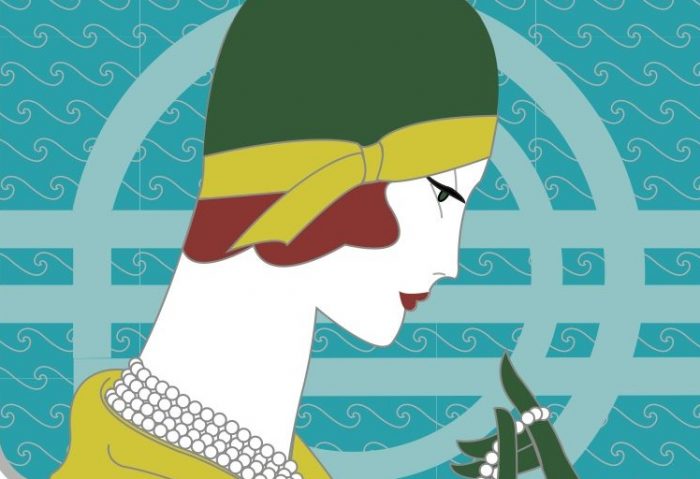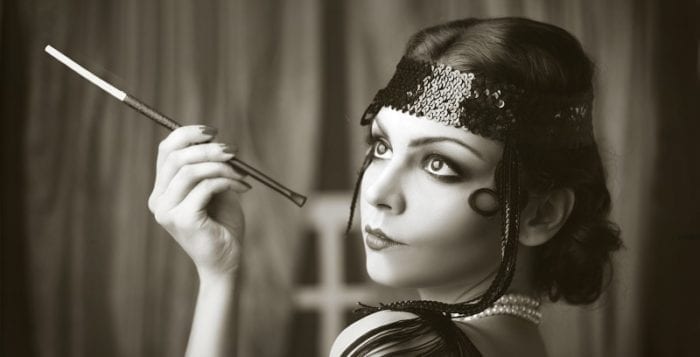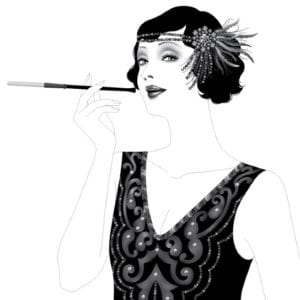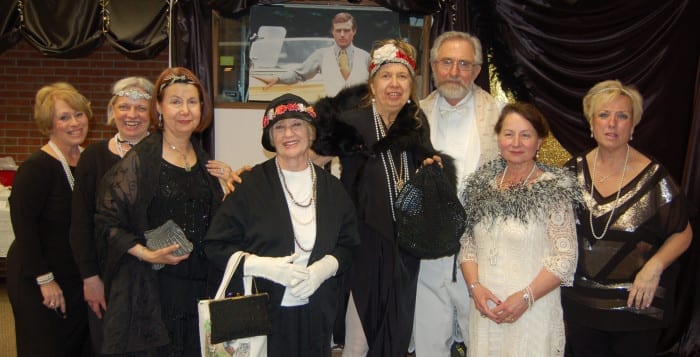By Leah S. Dunaief

One hundred years ago, it was the “Roaring Twenties.”
The Flappers were the icons then. They were women who shortened their skirts and shortened their hair. They wore makeup and looser clothing, smoked cigarettes in public, drank alcohol, drove cars, and otherwise reveled in what would have been considered unacceptable behavior in the past.
Oh, and then there was a more liberal attitude toward sexual behavior. It was, in a couple of words, more relaxed. Or so they say.
It seemed that after the carnage and sacrifices of World War I, the goal was to have fun. The Great War had dramatically changed lives, bringing women for the first time into the factories to replace the men, forcing them to manage the farms, making them the breadwinners on a national scale. They won the right to vote. When the men returned, they carried with them from across the Atlantic some of European culture and broader horizons.
It was a time of positivity, of innovation. A key word was “Modern.” Labor saving devices were invented, like the washing machine and vacuum cleaner. The radio came into its own and into living rooms. Thanks to the Ford Model T at $260 in 1924, cars became affordable, offering more freedoms. Credit became cheap, and the economy surged. Presidents Harding and Coolidge issued tax cuts; the stock market took off; people flocked to the cities where they drank, danced new dances, thrilled to jazz and partied. With prohibition came the bootleggers, making it all more exciting. This also gave birth to organized crime figures like Chicago’s Al Capone. By the end of the decade, it was estimated that three-quarters of Americans went to the movies every week. F. Scott Fitzgerald chronicled the decade in his novels.
Life was not all fun, however. An anti-Communist “Red Scare” gave rise to nativism and anti-immigration movements. Quotas were set that limited Eastern Europeans and Asians in favor of Northern Europeans and Brits. The Great Migration of African Americans from the Southern countryside to Northern cities was seen as a threat and gave a couple of million people impetus to join the Ku Klux Klan by the middle of the decade. Discriminatory hiring and housing practices led to urban ghettos. The horrific Tulsa Race Massacre took place in 1921. The NAACP moved into higher gear. Finally, in 1928, the first African American congressman since Reconstruction was elected to the House from Chicago.
There was what historians call a “cultural Civil War” as well. This consisted of city-dwellers versus small town residents, Protestants versus Catholics, Blacks versus whites and “New Women” versus those with old-fashioned family values.
Many of these themes are repeated a century later. Women, of course, are still working toward a more equitable playing field in the workplace and in politics. Our society has become more liberal, embracing gay marriage, for example, and health care reform. Connectivity, thanks to the internet and social media, defines us in a much more sophisticated, two-way fashion than the radio did. And technology innovation advances at a faster speed than most of us can catch up. Just as the assembly line revolutionized the production of cars, electrically powered self-driving vehicles are taking to the road. While indoor plumbing was replacing outhouses, today’s toilets can be connected to the internet and send up-to-the-minute diagnostic urine samples to physicians.
Just as there were threats then, we see them now. Will artificial intelligence or AI put those with lower skills out of work? There are still outcries against immigrants, attributing fears to them from COVID to taking away jobs. Climate change is a more powerful catalyst for environmental protection than Teddy Roosevelt and John Muir. The stock market and the economy have reached unimaginable heights. And while nationalist groups are longing for the imagined glorious past, activists are working toward national ideals that have never quite been realized.
We are just emerging from a kind of world war a century later, the villainous COVID-19 pandemic. How will our decade be named?



 Travel back in time to the glitz and glamour of Long Island in the 1920s with a party Gatsby himself would be jealous of! The Smithtown Historical Society will host a Roaring 20s Party at the Elks Lodge, 120 Edgewood Ave., Smithtown on Saturday, April 7 at 7 p.m Enjoy dinner and dancing — period appropriate costumes encouraged! $75 per person, $140 couple. To RSVP, call 631-265-6768.
Travel back in time to the glitz and glamour of Long Island in the 1920s with a party Gatsby himself would be jealous of! The Smithtown Historical Society will host a Roaring 20s Party at the Elks Lodge, 120 Edgewood Ave., Smithtown on Saturday, April 7 at 7 p.m Enjoy dinner and dancing — period appropriate costumes encouraged! $75 per person, $140 couple. To RSVP, call 631-265-6768.



